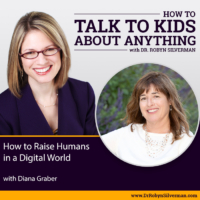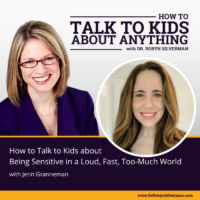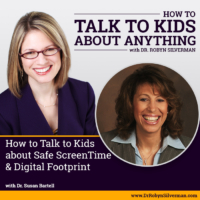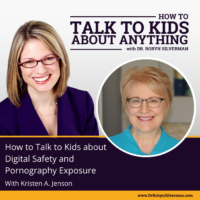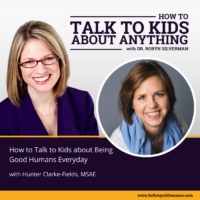Podcast: Play in new window | Download
Subscribe: Apple Podcasts | RSS | More
How to Talk to Kids about Being a Durable Human in a Digital World
This podcast will focus on how we can make ourselves more “durable” (built to last!) in the digital age when smart phones, google and gps are taking over. How can we maintain and grow healthy attachment, curiosity, strong relationships and good practices around sleep? Find out what parents need to know to help their kids become “durable” while modeling positive and healthy ways of interacting with technology.
Special guest: Jenifer Joy Madden.
According to Forbes magazine, the most sought-after attributes in an employee are not technical. All are human-centered, including 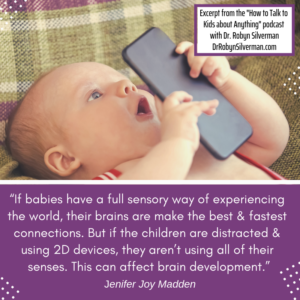 the ability to work in a team, make decisions, and prioritize. But authors and experts have found a sad shift regardless- During a lecture at Rochester Institute for Technology, Allen Chochinov urged design students not to eliminate human input. He admitted: “Today, if you want to know what’s wrong with a car engine, you can’t even open it. You need to plug in a computer. High schools are dropping shop class. Soon, no one will know how to do anything.” Is he onto something? What do we lose when we gain so much technology?
the ability to work in a team, make decisions, and prioritize. But authors and experts have found a sad shift regardless- During a lecture at Rochester Institute for Technology, Allen Chochinov urged design students not to eliminate human input. He admitted: “Today, if you want to know what’s wrong with a car engine, you can’t even open it. You need to plug in a computer. High schools are dropping shop class. Soon, no one will know how to do anything.” Is he onto something? What do we lose when we gain so much technology?
My next guest says; “In this age when Google, GPS, and artificial intelligence can perform so many of our basic functions, it’s gotten to the point where we need to be actively human so that we are more effective and less overwhelmed.” We have so many tools to simplify our lives- they think for us, navigate for us, create for us, entertain for us but it often seems that these tools that are meant to simplify, leave us busier, crazier, and more “all over the place” than ever. I don’t know about you but I often feel like I’m being shot out of a cannon—running from place to place without a slow-down in sight. Now we’ve talked about technology with Sue Scheff and Devorah Heitner and some other wonderful guests- and we’ve talked about mindfulness not too long ago with crowd-favorite Dr. Laura Markham- but we’ve got to really delve into what’s going to help us thrive and survive in a digital world without losing ourselves and losing our children to screens and technology- and I don’t mean just the time spent on these devices and plugged in- but what we might be losing in terms of creativity, curiosity, empathy, compassion, health and memory—how can we exist in this digital world, maintain what makes us beautifully human, and become, what my next guest calls “durable.”
Jenifer Joy Madden is the Founder of DurableHuman.com. She is a veteran broadcast news writer, health journalist, parent educator, digital media adjunct professor, and proud parent of three durable young adults. Speaking on the TEDx stage and to other audiences, Jenifer often leads events amidst the splendor of nature. She has distilled her science background and rich life experience into two books: the philosophical, inspiring The Durable Human Manifesto: Practical Wisdom for Living and Parenting in the Digital World and the practical How To Be a Durable Human: Revive and Thrive in the Digital Age Through the Power of Self-Design.
The podcast provides:
- What it means to be a durable human
- How parenting is different now than it was before the digital age
- What parents really need to understand about the brain
- How screen time can change the brain in terms of eyesight, sleep and curiosity.
- How screen time can interrupt attachment
Important Messages:
- More “interesting” things to look at inside the home now with so many digital devices used to entertain.
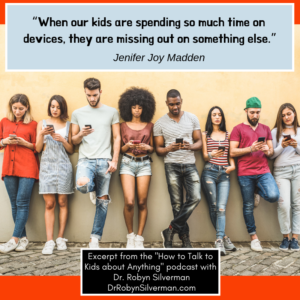
- Smart phones proliferating in the world.
- Adults behaving differently towards each other- some of our attributes were changing.
- Parents have a lot more to manage now that the world is “digital.” We had a lot more time to focus on real life.
- Adults we need to be cognizant of how they are functioning with digital devices.
- How do we keep our attributes durable? For example, our eye sight- we are meant to look far and near. If kids are always looking at screens, it will impact their eye sight negatively. Myopia. We need to manage that.
- 20/20/20 rule: Look up from your devices every 20 minutes for healthy 20/20 eyes!
- Sitting around on screens isn’t good for metabolism. We need to encourage kids to move.
- Brains take about 25 years to develop
- Babies brains study adult faces—and take everything in through their senses. They create an attachment. This also starts language development. Full sensory connection to the world means more brain connections.
- When kids are having a full sensory experiencing- touch, taste, experiencing the world around them, their brains are bushy like broccoli but when they are always in front of screens, their brains look more like broccolini- sort of skinny.
- Make sure your child gets outside and moves around. Kids get very comfortable in the 2D world.
- The developers of ipads etc didn’t know the longterm impact of these devices.
- Harmony basket: Devices go in for dinner. Attention stealers go in the basket.
- Sit at the dinner table- eye contact. A good time to observe them. You know if something is bothering them. You are watching the mini-moments of childhood or the any-moments of childhood.
- Teenagers don’t alert themselves about cyber-bullying for 7-9 months- you might detect something in your child’s face at the dinner table.
- Humans need to keep coming up with new and interesting things- create- so that we don’t lose our value.
- Sleep—it’s needed! How can we ensure it? Make sleep a priority.
- Kids will be more awesome and they will retain more (long term memory) from school if they get a better night’s sleep. Dishwashing component- waste washed away and also there’s a memory component. Need uninterrupted sleep. No electronics in bedroom. All electronics outside of the bedroom.
- Use an alarm clock to wake up instead of a device.
- Script: “I know you like to talk to your friend on Facetime- it’s time to go to sleep and we have to put our devices away and out of the bedroom so you can recharge just like your device gets recharged.”
- Train the child to know who they are and what is the tech tool. Separate these two things.
- Physically separate from the phone. Model it- and create the habit.
- Make sure there are alternatives around that are different from the devices.
- “I know that’s a lot of fun but to make you as awesome as you can be, you need to do some other things too. Your muscles need you right now. Let’s go outside!”
Notable Quotables:
- “When our kids are spending so much time on devices, they are missing out on something else.”
- Durable means to ‘last a long time’ or to be effective. We, as human beings have some wonderful things about us in our bodies, our minds, our spirits and our beautiful relationships with each other. We have to understand what our strengths are and then keep these things as durable as possible.
- “I think the biggest disservice a parent can do is not allow a child to bloom their curiosity and allow that spark to come to that flame. If kids are allowed to just full up their time with an online game that they just play over and over again, they may never develop that spark inside them and that’s what’s going to differentiate us from AI and robots- that’s how we keep our value.”
- The way kids interact with their technological tools can affect their eyesight—one of their primary human resources! So don’t forget the 20-20-20 rule. Look up from your device every 20 minutes.
- Parents need to see their children for their beautiful attributes and protect them as opposed to deferring to their devices even if they are having fun.
- “We need to keep ourselves, as human beings, strong and capable because we have so much competition from technology—that means flipping our parenting to protect and strengthen our human characteristics.”
- “If babies have a full sensory way of experiencing the world, their brains are going to be making the best and fastest connections. But if the children are distracted and using 2D devices, they aren’t using all of their senses. This can affect brain development.”
- “Make sure your child is experiencing the world with all 5 senses instead of allowing some of their child’s senses to be hijacked by the 2D environment.”
- “Children need a 3D 360-degree experience for full brain development. They’ve gotten very comfortable using ipads and phones and other attractive 2D devices.”
- “When we sit down together during meals, it may be the only time during the day when we have eye contact, see each other and when kids build those skills that they are going to need in the work place such as patience, taking your turn in the conversation, and even just knowing how to have a conversation.”
- “Having time at the dinner table to make eye contact is so important. If you hadn’t had that time to look up at your children at the dinner table, you might miss something. It’s your time to observe how they are doing—and it’s critical.”
- “Make sleep a priority.”
- “Make the bedroom a sanctuary.”
- “Train your child to know who they are and what is there technological tool or support, separate from themselves. They are in charge. They are not dominated by the tool. We want our kids to know how smart they are and know that their tool is just a tool.”


